Filter by
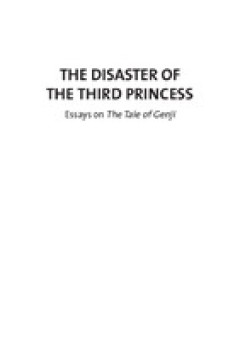
The Disaster of the Third Princess
These seven essays by the most recent English translator of The Tale of Genji emphasize three major interpretive issues. What is the place of the hero (Hikaru Genji) in the work? What story gives the narrative underlying continuity and form? And how does the closing section of the tale (especially the ten “Uji chapters”) relate to what precedes it? Written over a period of nine years, the e…
- Edition
- -
- ISBN/ISSN
- 320414329
- Collation
- -
- Series Title
- -
- Call Number
- -
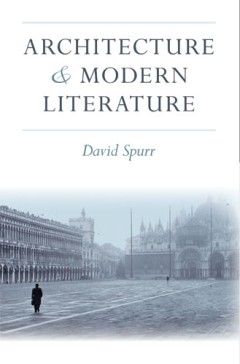
Architecture and Modern Literature
Architecture and Modern Literature explores the representation and interpretation of architectural space in modern literature from the early nineteenth century to the present, with the aim of showing how literary production and architectural construction are related as cultural forms in the historical context of modernity. In addressing this subject, it also examines the larger questions of the…
- Edition
- -
- ISBN/ISSN
- 9780472071715
- Collation
- -
- Series Title
- -
- Call Number
- 800 SPU a
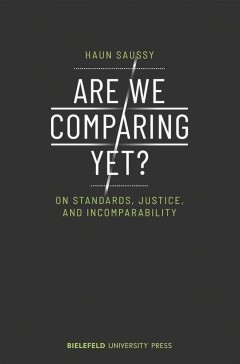
Are We Comparing Yet? : On Standards, Justice, and Incomparability
Debates about the possibility of an open culture - or indeed about the possibility of an open debate about the openness of culture - often turn on questions of standards. But since no benchmark can be absolute, judgement is a proliferation of comparisons.Through a series of case studies in everyday and academic comparison (literature, history, politics, philosophy), Haun Saussy calls out the ty…
- Edition
- -
- ISBN/ISSN
- 9783839449776
- Collation
- -
- Series Title
- -
- Call Number
- 306 SAU a
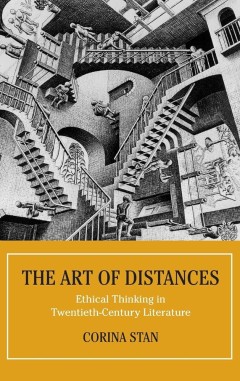
The Art of Distances : Ethical Thinking in Twentieth-Century Literature
The Art of Distances identifies a preoccupation with interpersonal distance in a strand of 20th-century literature that includes the work of Orwell, Morand, Canetti, Murdoch, Benjamin, Ernaux, Grass, and Galgut. Specifically, Stan shows that these authors engage in philosophical meditations on the ethical question of how to live with others and how to find an ideal interpersonal distance at his…
- Edition
- -
- ISBN/ISSN
- 9780810136861
- Collation
- 280 halaman
- Series Title
- -
- Call Number
- 800 STA a
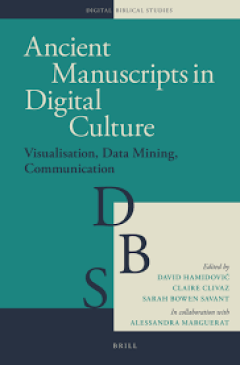
Ancient Manuscripts in Digital Culture : Visualisation, Data Mining, Communic…
Ancient Manuscripts in Digital Culture presents an overview of the digital turn in Ancient Jewish and Christian manuscripts visualisation, data mining and communication. Edited by David Hamidović, Claire Clivaz and Sarah Bowen Savant, it gathers together the contributions of seventeen scholars involved in Biblical, Early Jewish and Christian studies. The volume attests to the spreading of digi…
- Edition
- -
- ISBN/ISSN
- 9789004399297
- Collation
- xvi, 284 halaman
- Series Title
- Digital Biblical Studies, Volume: 3
- Call Number
- 800 ANC

Anglo-Saxon Literary Landscapes : Ecotheory and the Environmental Imagination
Literary scholars have traditionally understood landscapes, whether natural or manmade, as metaphors for humanity instead of concrete settings for people's actions. This book accepts the natural world as such by investigating how Anglo-Saxons interacted with and conceived of their lived environments. Examining Old English poems, such as Beowulf and Judith, as well as descriptions of natural eve…
- Edition
- -
- ISBN/ISSN
- 9789048528387
- Collation
- 208 halaman
- Series Title
- Environmental Humanities in Pre-modern Cultures
- Call Number
- 800 EST a
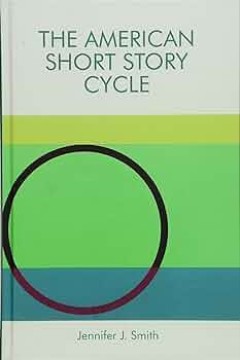
The American Short Story Cycle
The American Short Story Cycle shows the roots of modernism and postmodernism winds through the short story cycle. Reviewers ranging from the The New York Times to Amazon do not know what to call books like Jennifer Egan's A Visit from the Goon Squad or Jhumpa Lahiri's Unaccustomed Earth. Why do such popular and acclaimed books spark debates about what they are and how they should be read? The …
- Edition
- -
- ISBN/ISSN
- 9781474423946
- Collation
- 208 halaman
- Series Title
- -
- Call Number
- 800 SMI a
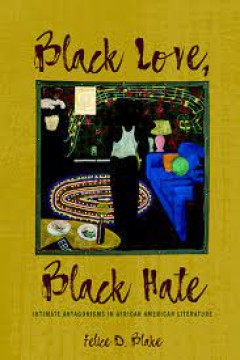
Black Love, Black Hate
Felice D. Blake's Black Love, Black Hate: Intimate Antagonisms in African American Literature highlights the pervasive representations of intraracial deceptions, cruelties, and contempt in Black literature. Literary criticism has tended to focus on Black solidarity and the ways that a racially linked fate has compelled Black people to counter notions of Black inferiority with unified notions of…
- Edition
- -
- ISBN/ISSN
- 9780814213865
- Collation
- -
- Series Title
- -
- Call Number
- 800 BLA b
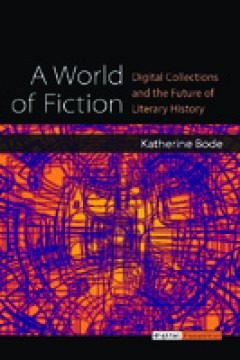
A World of Fiction: Digital Collections and the Future of Literary History
During the 19th century, throughout the Anglophone world, most fiction was first published in periodicals. In Australia, newspapers were not only the main source of periodical fiction, but the main source of fiction in general. Because of their importance as fiction publishers, and because they provided Australian readers with access to stories from around the world—from Britain, America and …
- Edition
- -
- ISBN/ISSN
- 9780472130856
- Collation
- -
- Series Title
- -
- Call Number
- -
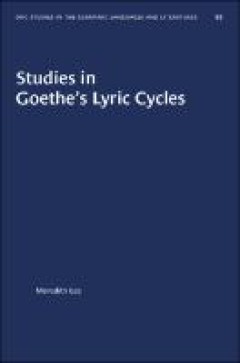
Studies in Goethe's Lyric Cycles
The book presents a series of interpretive readings of the "Römische Elegien", "Sonette", "Chinesisch-deutsche Jarhes- und Tageszeiten", several trilogies, and the shorter cycles of 1821, taking into account the variety of literary devices Goethe employs to link poems together into a cycle. The author examines Goethe's role in the history of the lyric cycle and, in stressing structural design,…
- Edition
- -
- ISBN/ISSN
- 9781469657783
- Collation
- -
- Series Title
- -
- Call Number
- -
 Computer Science, Information & General Works
Computer Science, Information & General Works  Philosophy & Psychology
Philosophy & Psychology  Religion
Religion  Social Sciences
Social Sciences  Language
Language  Pure Science
Pure Science  Applied Sciences
Applied Sciences  Art & Recreation
Art & Recreation  Literature
Literature  History & Geography
History & Geography